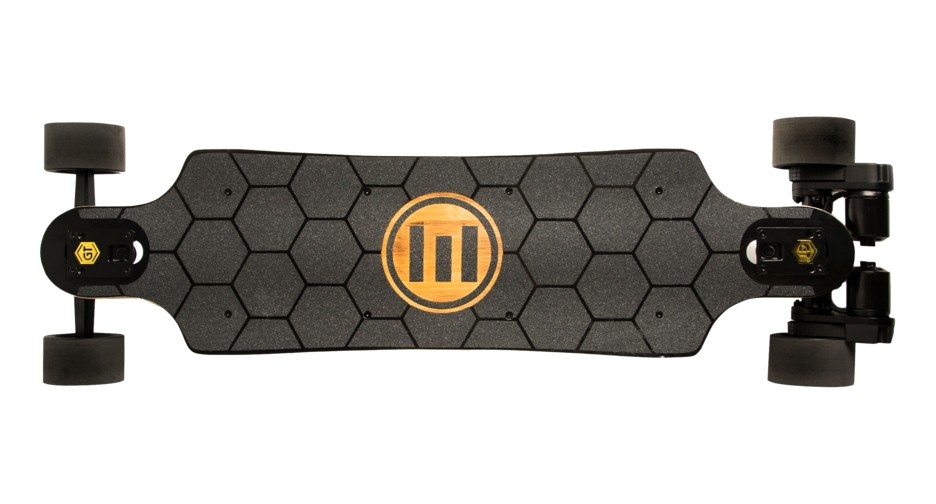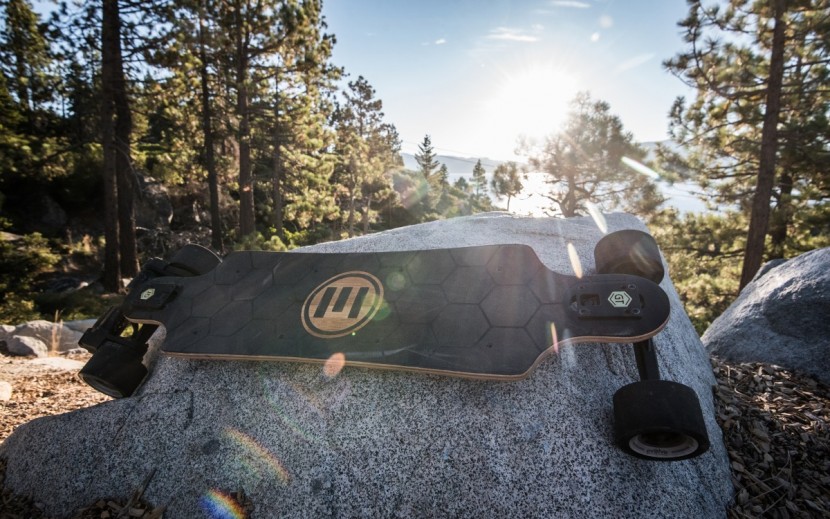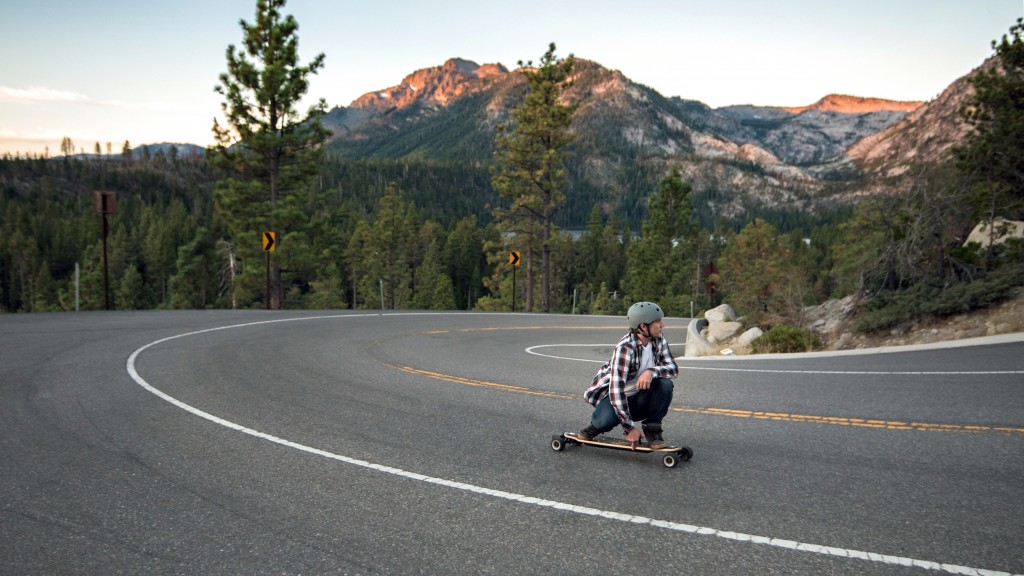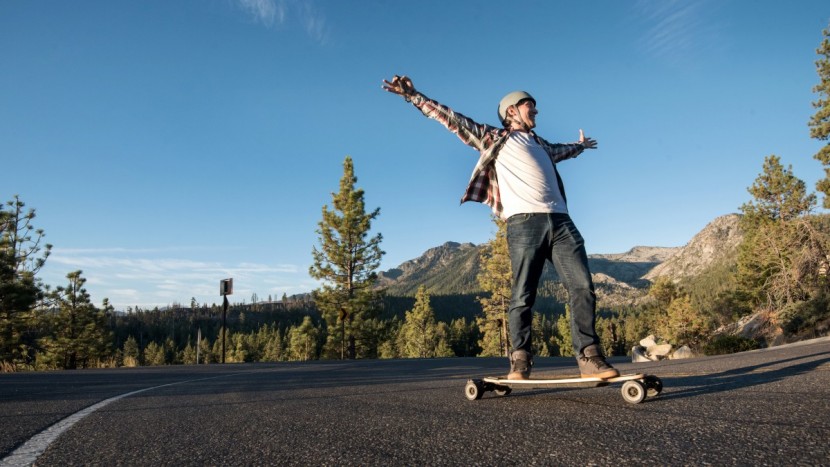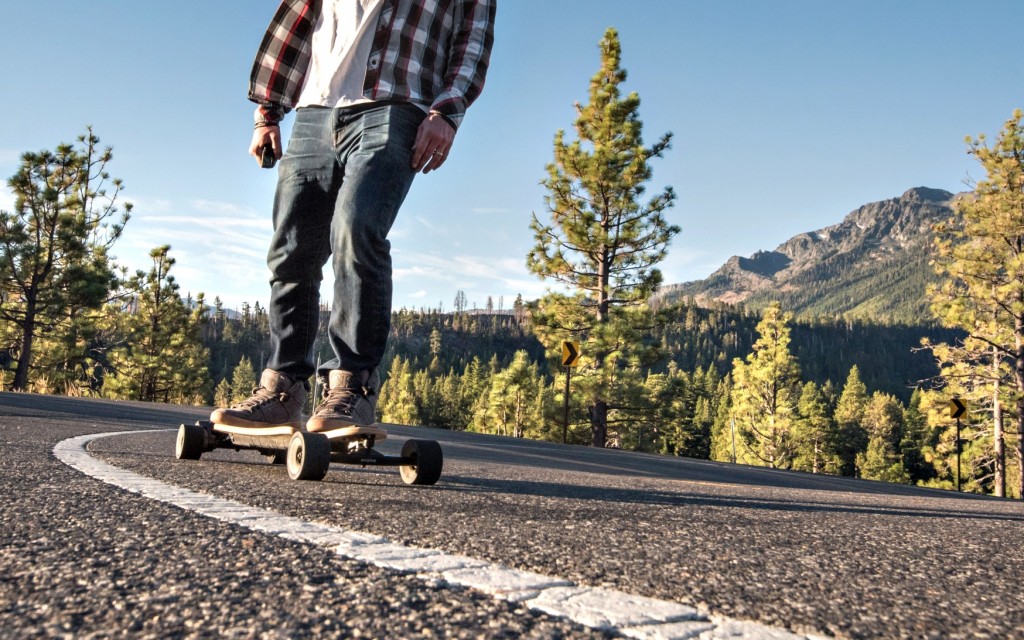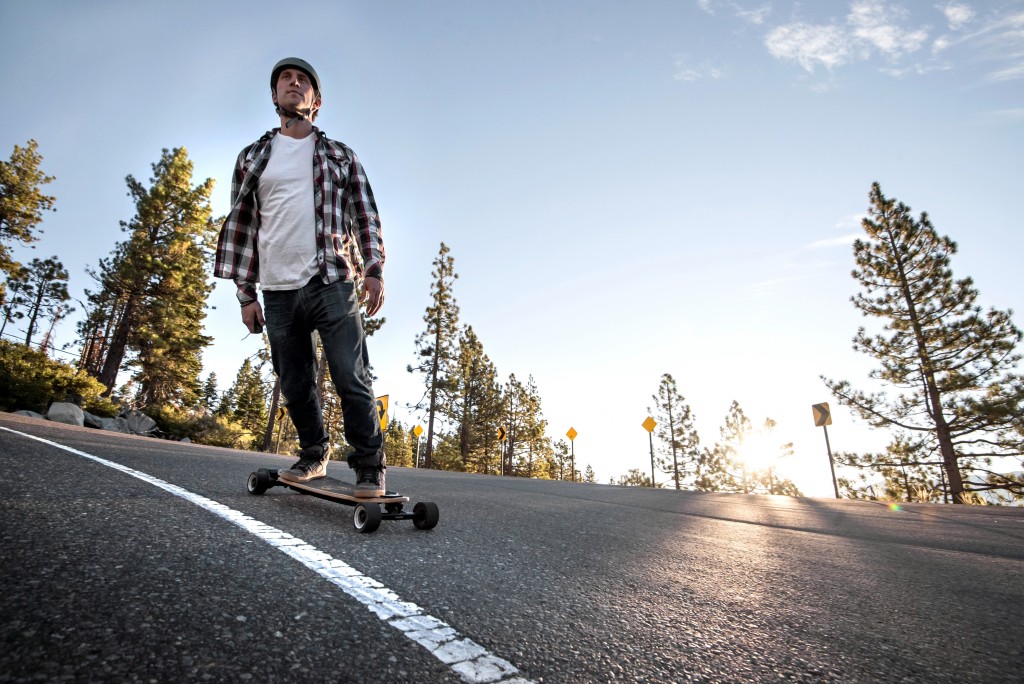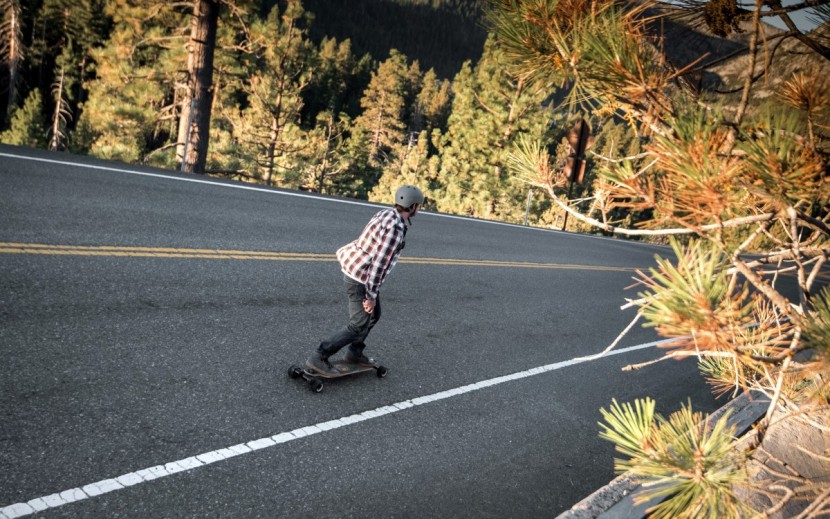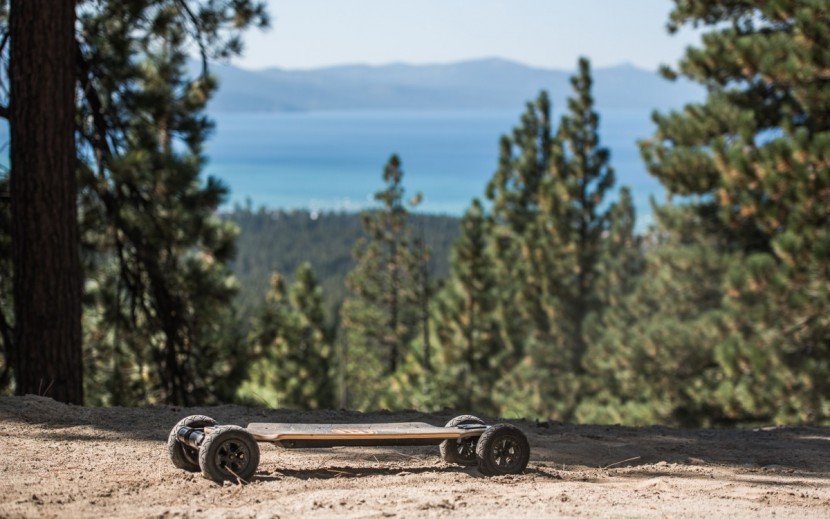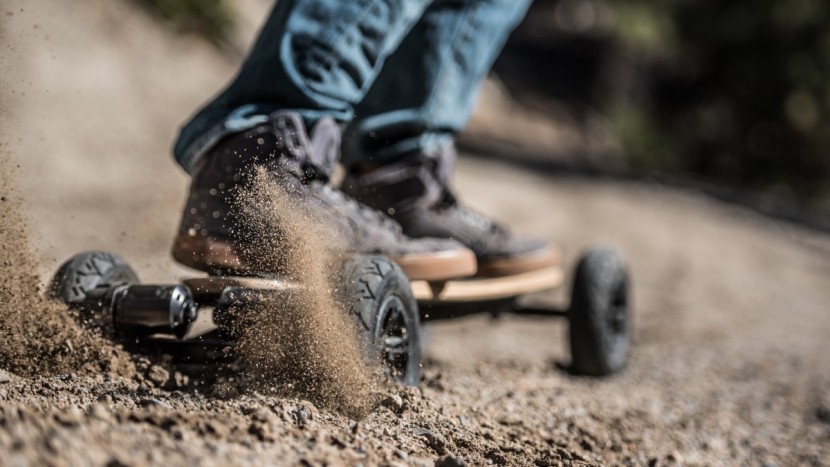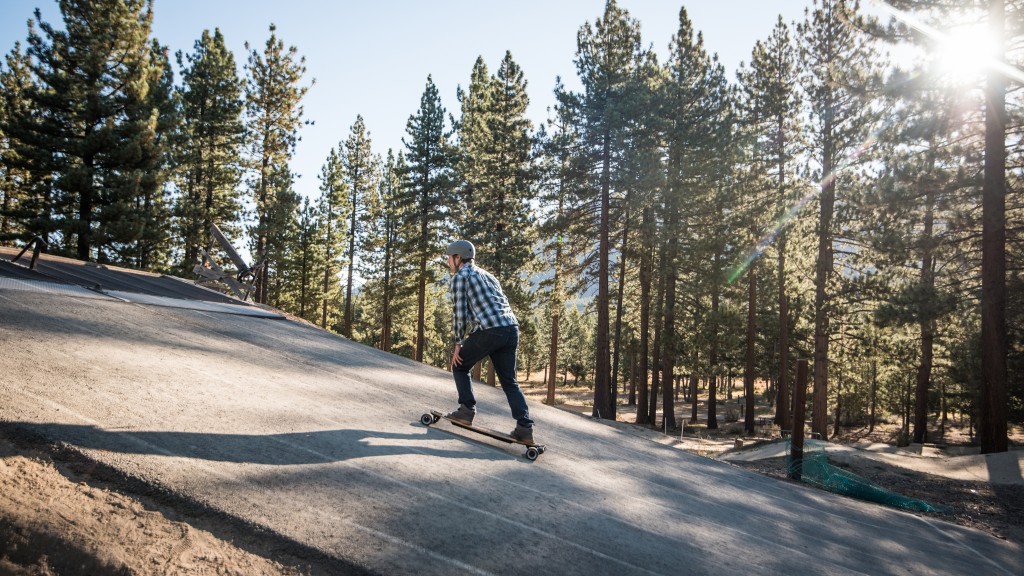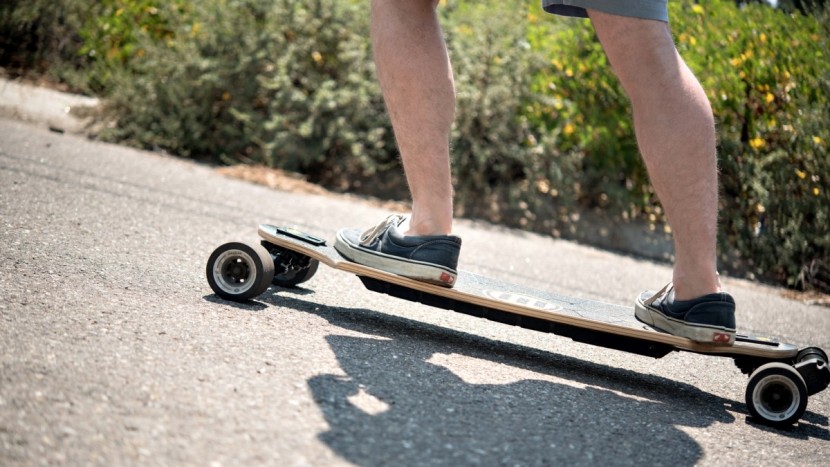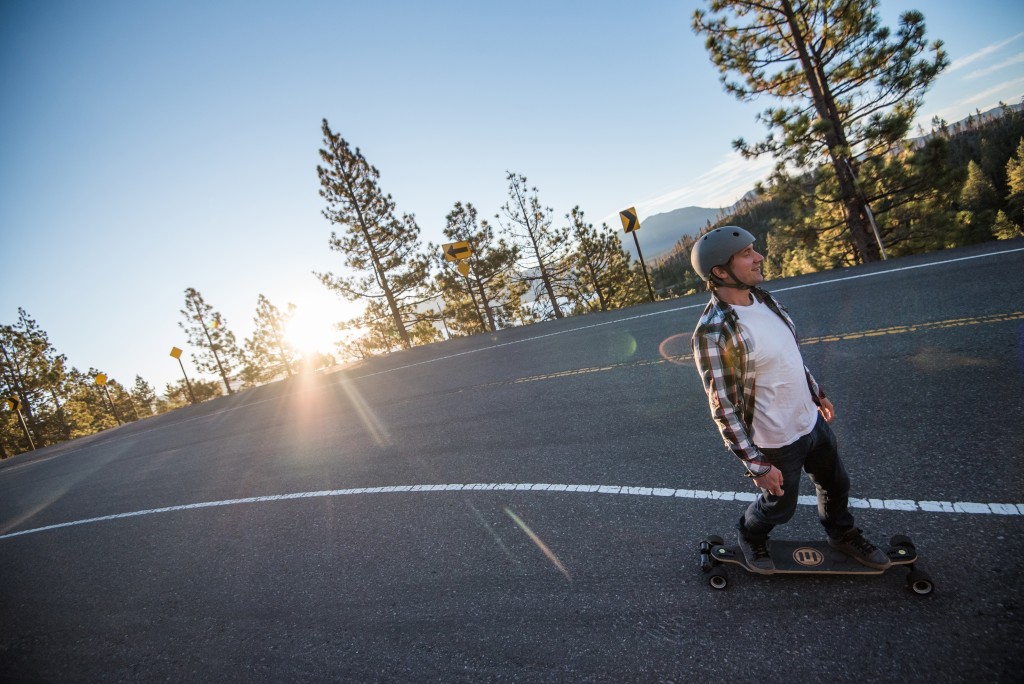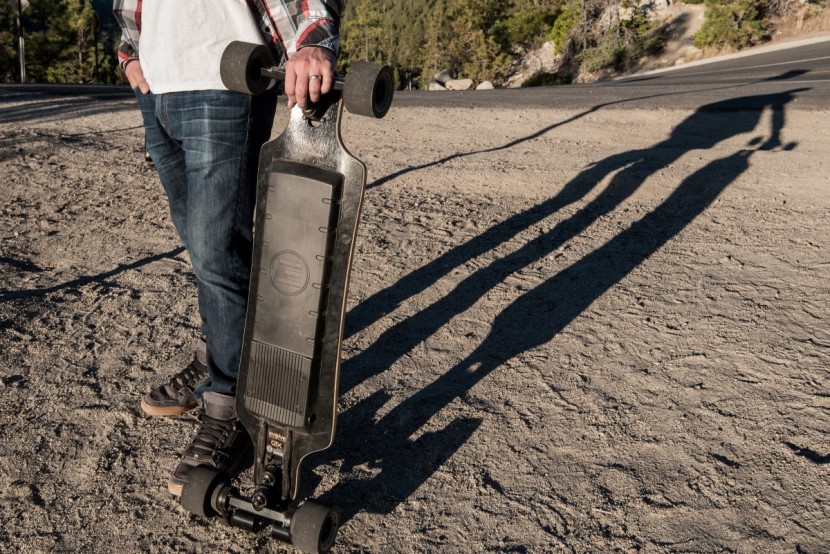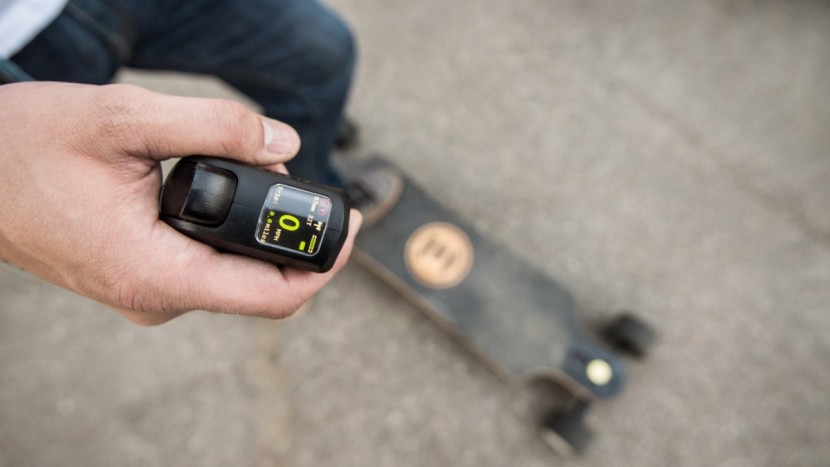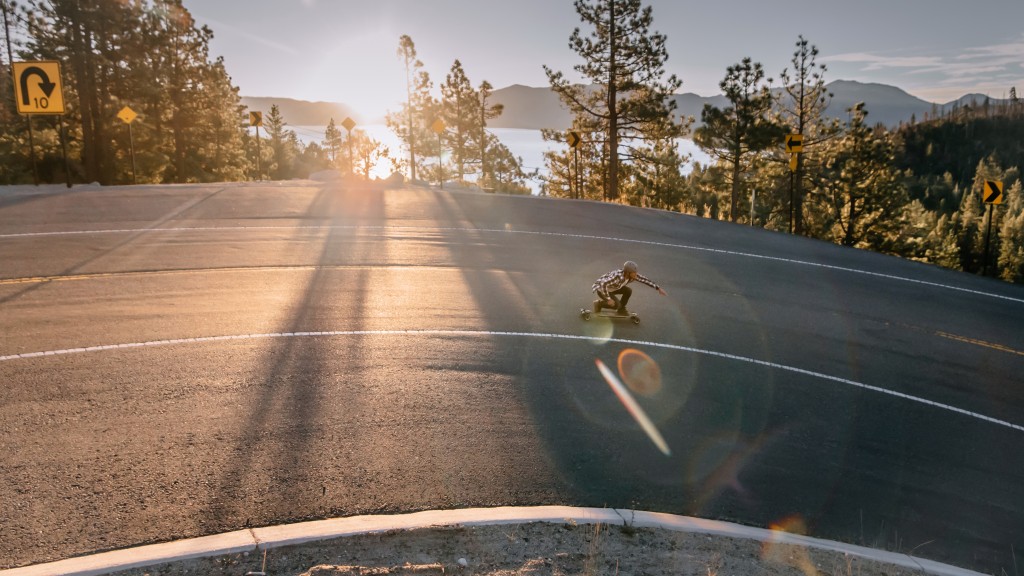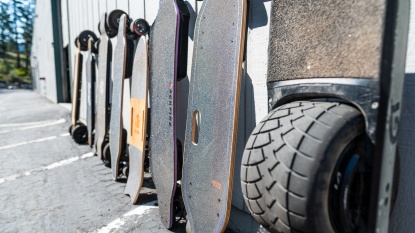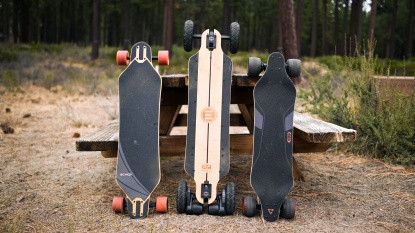Evolve GTX Bamboo Street Review
Our Verdict
Our Analysis and Test Results
This board is quite a ways out in the front of the pack, outperforming its predecessor, the Evolve GT Bamboo by 5 points or so. The GTX has a significantly increased range and slightly better braking capabilities than the GT, but also retails for a couple of hundred dollars more.
Speed
Whenever we are out riding one of the boards around, the first question we inevitably get asked is: “How fast does that thing go?”. Speed is usually first and foremost on our minds as well and our set of speed tests consequently accounts for 25% of the total score for each board. As mentioned above, the GTX Bamboo is one of the fastest boards we have seen to date, earning it a 9 out of 10 in this metric.
For this test, we looked at both the top speed of each board and how quickly it accelerates. We gave each board three shots in our top speed test, timing how long each one took to cover a measured course, with the boards entering the course at top speed. We averaged the GTX's results and found that hit an average top speed of 23.85 mph in our tests, comparing quite favorably with the rest of the pack.
For our acceleration assessment, we repeated the above procedure, but had each board start from a complete stop.
The GTX again dominated this test, though it couldn't quite match the acceleration of its predecessor --most likely due to its slightly larger wheels.
Range
After our time trial test for the Speed metric, our range testing is next most important, constituting 20% of the overall score. We ran each board at a moderate speed on flat level ground to determine its economical range, which made up most of each board's score for this metric, but we also took the time to charge into account when determining the score. The Evolve GTX again delivered an exceptional performance, meriting a 10 out of 10, putting it right at the top of the pack.
This model lasted for an astonishing 32.3 mph in our test — by far the longest that we have seen so far.
We kept the board in Eco mode the whole time and appreciated that performance didn't gradually decline as the battery wore down, with the lower battery level being relatively imperceptible until the moment it was fully depleted.
Unfortunately, this also means that the GTX is one of the slowest boards to charge, taking about 5 hours and 45 minutes to fully fill up a completely depleted battery.
Ride
For our next group of tests, we evaluated and scored how it felt to actually ride each of these products, focusing on how comfortable it, how it felt to ride for long periods of time, and how it handled unexpected cracks or bumpier terrain. In short, it was how drawn to each board we were — whether we wanted to grab it outside of testing for quick trips around of town or if we only rode it when we absolutely had to. The GTX is one of our favorites, earning a 7 out of 10 in this metric, which also makes up 20% of the total score for each board.
This board is exceptionally comfortable to ride, even for extended periods — handy, with its 30+ mile range on a full charge. It has a nice wide platform that provides ample room for a comfortable stance and is flexible enough for carving.
The relatively larger street wheels also make the ride a bit smoother, making it less jarring when going over cracks and bumpier and rugged roads a bit less rough.
It gets exponentially smoother if using the AT wheelset, allowing you to easily ride over some seriously beat up asphalt.
You can also venture off the pavement and get into some pretty serious off-roading.
However, you should be always conscious of local rules and regulations when riding your E-skateboard off — and on — road. Regulations vary wildly among different jurisdictions and you definitely don't want to have to pay a pricey ticket after shelling out top dollar for the GTX.
Hills
One of the best things about these products is the ability to zip effortlessly up steep hills. The GTX again is one of the best boards you can get, earning a 10 out of 10 for its stellar performance. Our hill tests make up 15% of the total score for each board.
We tried out each board on hills of varying steepness and the GTX cruised up them all, even tackling our steepest hill (23%) without the slightest sign of a struggle.
It even made it up the steepest hills 3-4 seconds faster than its predecessor, the Evolve GT did.
Build
Next, we looked at the overall build of the board, which accounts for 10% of the total score. We compared the weight of each board, the ergonomics of the remote, how responsive the board is, and if it has regenerative braking, as well as the quality of the customer support. The GTX again delivered another top performance, earning a 7 out of 10 for its results.
This board had regenerative braking and customer support that is quite responsive, replying to any of our questions promptly and knowledgeably. There is both a phone number and an email where they can be reached and the board includes a 6-month warranty and a 7-day return period at the time of writing, though this could always change, so worth checking the manufacturer's site right before you buy.
Unfortunately, this board is a little on the heavier side, making it a little less friendly to take on public transit and its larger battery exceeds most airline carry-on requirements.
However, it isn't excessively difficult to carry for most people and is long enough that you can roll it behind you like a rolling suitcase in more open areas if you are traveling a long distance with it.
The remote is decently ergonomic when you get used to it, though it can take a bit of use until it feels natural, especially if you aren't already familiar with the previous iteration of the remote for the GT.
We particularly liked that the trigger is decently protected to prevent accidental breakage and the overall construction feels quite sturdy. The screen and haptic feedback are also nice features to make it easier to use. The board itself is also extremely responsive to remote commands, without being labeled twitchy or oversensitive.
Braking
For the remaining 10% of the total score, we evaluated and scored the stopping abilities of each board. As expected at this point, the GTX again delivered an exceptional performance, putting up another one of the top overall scores with a 7 out of 10.
We based this score on two factors: how well you could control your speed on a steep descent and how quickly you could come to a complete stop on flat ground from a moderate speed. This board makes it easy to go down steeper hills, easily reducing your speed to 1-3 mph with the brakes on full.
Based on the average of three trials, the GTX came to a complete stop about 30' after we hit the brakes when traveling 12 mph or so.
This is one of the shorter distances of the group, though not quite the best.
Value
While the GTX is one of our favorites, all that performance comes at a premium price, making it difficult to recommend this product as a bargain option.
Conclusion
Overall, the GTX is a great choice if you want the absolute best of the best. It's exceptionally fast, zips up even the steepest of hills, and allows you to stop quickly. This board is incredibly comfortable to ride, even for incredibly long rides, which are possible with the exceptionally long range on this product. If you want the best and are willing to pay for it, the GTX should be the first option you consider.


